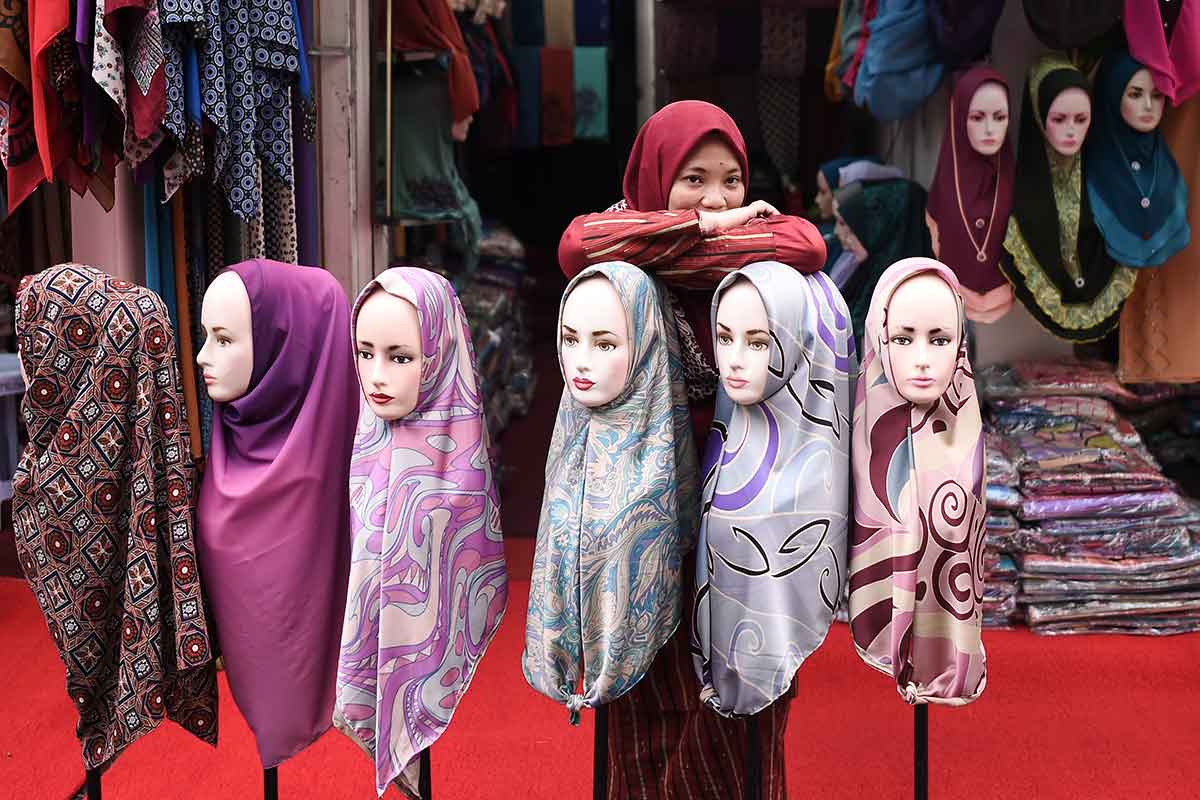According to the Qur’an chapter 24 verse 31, “And tell the believing women to reduce their vision and guard their private parts and not expose their adornment except that which appears thereof and to wrap (a portion of) their headcovers over their chests and not expose their adornment…”. The verse calls for women to cover their bodies and not expose it to anyone with the exception of their closest relatives.
Recently, Muslim women’s rights activist Maryam Lee courted controversy in Malaysia by writing a book entitled “Unveiling Choice” and hosting a forum called “Muslim women and dehijabing” at a bookstore in the city of Petaling Jaya in the state of Selangor on 13 April, 2019. Both actions coincide with her stance that Muslim women should be given the choice to cast aside their hijabs or veils.
Her call to dehijab has been met with anger and fear from the Muslim community.
Many right-wing establishments have criticised the author, saying that she was coercing people into vice with some even calling her a hypocrite. To be fair, their fears go much deeper than viewing Maryam as a woman wanting freedom of choice and expression.

Source: Various
National anxiety
Malaysia has always been a Muslim-majority country with over 50 percent of its population being Malay-Muslim. As such, the issues of race and religion have been heavily politicised as was the case during the country’s 14th General Election (GE14).
The rise of Islamic conservatism has also influenced the administration in parts of the country. For example, in the state of Kelantan, the Islamic Religious Affairs Department (JAHEAIK) there has carried out numerous operations like Ops Aurat and Ops Sopan where women who did not wear the hijab or were caught wearing tight outfits were summoned.
This action came under scrutiny of local civil society organisation, Sisters in Islam (SIS). Its communications manager, Majidah Hashim, said that “it is worrying that it (Ops Sopan) is becoming the new norm and punishing women for their choice of clothing is considered ‘okay’”.
While a woman’s choice of clothing is up to her, being respectful of the law is the responsibility of all citizens.
Maryam’s alleged actions were also seen as potentially jeopardising the sanctity of Islam, causing outrage among Muslims in the country.
Another thing that Maryam and many other feminists should keep in the back of their minds going forward is that while article 10 of the Federal Constitution of Malaysia does allow for freedom of speech, as long as it does not overstep certain boundaries as stated in the Sedition Act of 1948.
Maryam’s actions could be considered an offence under Section 4 (c) of the act which prohibits the publication and sale of any seditious material. Her book, “Unveiling Choice” could be seen as a challenge to the establishment and its Islamic authorities which in turn could be classified as seditious.
An offence under the Sedition Act could land someone with a fine of up to RM5,000 (US$1200) or jail time of up to three years or both.
Some would consider Maryam’s actions unconstitutional as it incites outrage among Malaysians.
‘Westernisation’
However, the main concern among most Malaysians is the westernisation of their beliefs that is currently threatening their Malaysian identity, according to Nor Aizat Rahimi Rostam Rahimi, Vice Leader of the Youth of Malaysian Muslim Solidarity (ISMA) in an interview with TV Pertiwi on 17 April, 2019.
“They (the feminists) want the young generation to follow their idols in the West”, explained Nor Aizat Rahimi in the same interview. Maryam Lee had tweeted before that seeing two-year olds already “trained” to wear the hijab was “heart-breaking” for her as she thought they were “forced” to wear it.
The question of whether or not we should follow western beliefs does not have a clear-cut answer. In the end, society has to ask itself if allowing its women the freedom to choose could truly jeopardise their identity. Probably educating the other side about the other’s advantages could allow for a compromise within the conservatives of Malaysia.
Related articles:
Is Malaysia moving towards the far-right?
